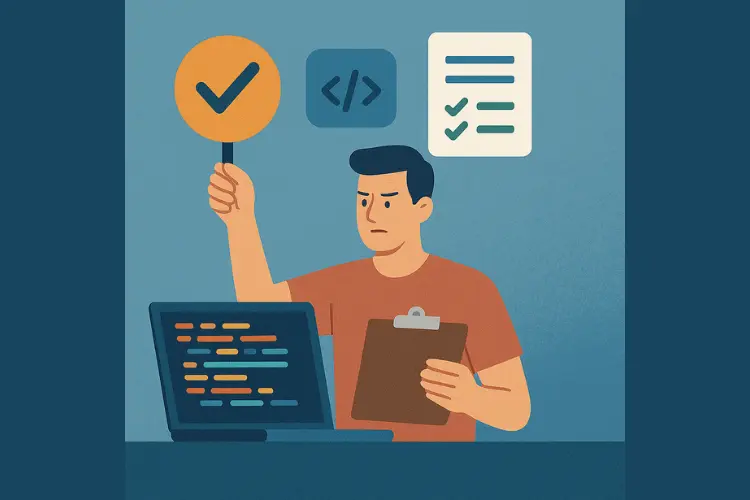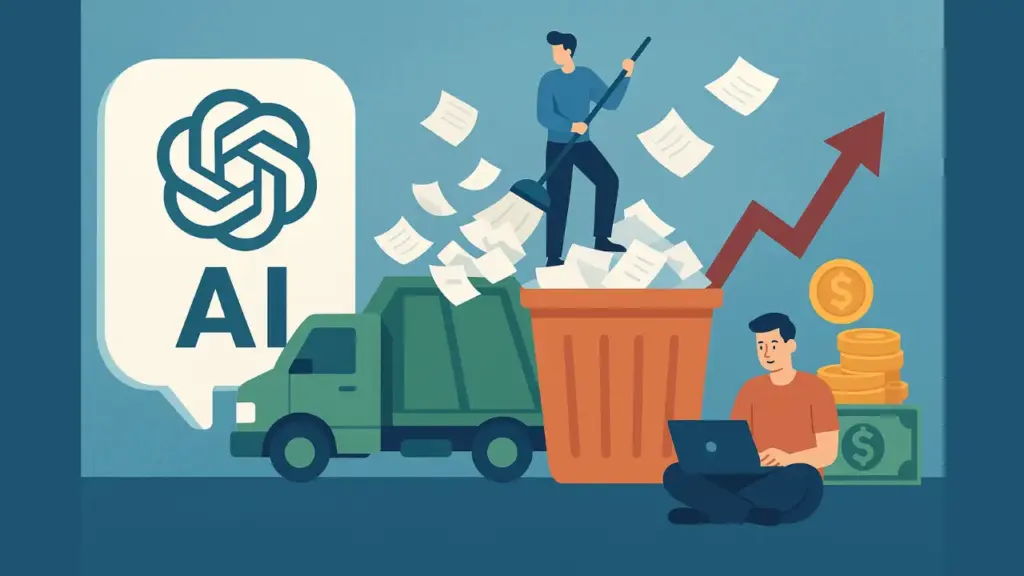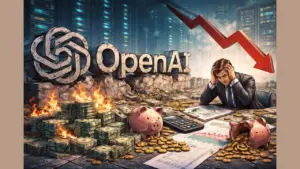Introduction: AI’s Flaws Are Fueling New Job Markets
AI was designed to boost productivity, lower costs, and speed up workflows. But something unexpected happened. Instead of eliminating jobs, tools like ChatGPT have created a new kind of demand—experts who fix AI mistakes.
This growing trend has given rise to a niche market. Developers, content creators, and even fractional CTOs are cashing in by correcting flawed AI output. Businesses thought AI would save them money, but they’re now paying even more for human cleanups.
1. AI Mistake Fixers Are in High Demand
A new breed of specialists is emerging. These professionals aren’t building from scratch—they’re cleaning up after AI.
Take Sarah Skidd, for example. She was hired to rewrite marketing copy originally generated by an AI tool. After 20 hours of rework, she earned $2,000—far more than what the company would have paid upfront for human-written content.
In the UK, Sophie Warner’s agency now receives a steady flow of requests from clients who used ChatGPT and ended up in trouble. Her firm even charges diagnostic fees to uncover what the AI got wrong before doing any edits.
This is no longer rare—it’s becoming the norm.
2. Expensive Mistakes: When AI Gets It Wrong
The stories keep coming. One business tried to update its website with AI-generated code. A single faulty line caused the entire site to crash. It stayed down for three days. The fix cost nearly $500—yet a manual update would have taken only 15 minutes.
Another company used ChatGPT to draft its policy documents. The text looked professional but included risky phrasing. A legal review revealed it could have led to compliance issues. Fixing the draft took more time and money than starting from scratch.
Even tech-savvy teams are facing similar challenges. AI outputs that seem correct at first often contain subtle bugs. Catching them requires experienced developers—especially those serving in fractional CTO roles.
3. The Great Irony: AI Is Creating More Work, Not Less
AI promised efficiency. But many businesses now realize it’s doing the opposite. The cost of correcting AI-generated content often exceeds the savings they expected.
Instead of streamlining operations, AI introduces extra layers of work:
- Reviewing its output.
- Troubleshooting its errors.
- Rebuilding what should have been simple tasks.
And this extra work isn’t cheap. Skilled professionals charge a premium—because they’re not just fixing errors; they’re protecting a company’s reputation, time, and bottom line.
4. CTOs Are Now Hiring for Thinking, Not Typing
Leaders in engineering and tech aren’t ignoring this shift. They’re adapting hiring strategies.
Rather than focusing only on technical skills, CTOs and fractional CTOs now prioritize traits like:
- Analytical thinking.
- Problem-solving.
- Cautious decision-making.
Taras Tymoshchuk of Geniusee put it bluntly: “AI often sounds confident but is completely wrong.” Developers must learn to spot those confident mistakes, not blindly trust machine output.
Hiring managers now ask:
- Does the candidate question flawed AI responses?
- Do they seek clarity before writing code?
- Can they see beyond surface-level correctness?
These qualities are becoming the real differentiators.
5. New Hiring Tests: Can You Catch the AI’s Flaws?
To evaluate critical thinking, companies are changing their interview tactics.
One method? Give job candidates AI-written code with hidden errors. Their task isn’t just to fix it—it’s to figure out what’s wrong in the first place.
Some interviews now feature vague or incomplete tasks. Employers want to see how candidates handle unclear instructions. Do they ask good questions? Or make risky assumptions?
These techniques highlight something crucial: the best developers don’t just build. They analyze, question, and validate—especially when AI is involved.
6. From Writing Code to Judging It: The New Skillset
Being good at programming is no longer enough. Today’s developers must also act as reviewers, investigators, and even skeptics.
The most successful tech teams now value:
- Risk awareness.
- Skepticism toward AI results.
- A mindset focused on validation.
This shift has turned many fractional CTOs into essential assets. Their role isn’t limited to strategy anymore. They’re now hands-on:
- Auditing AI-generated outputs.
- Creating review workflows.
- Training junior staff to challenge AI’s results.
Their experience helps ensure that AI becomes a tool—not a liability.

Conclusion: AI Can’t Replace the Ability to Think Critically
We’re watching a new reality unfold. AI was expected to replace human roles. Instead, it’s making critical thinkers more valuable than ever.
A growing number of developers and content professionals are building entire careers around correcting AI’s flaws. These aren’t just technical jobs. They’re judgment-based roles that require patience, insight, and caution.
In this landscape, fractional CTOs and experienced engineers are leading the way. Their job is no longer just about building—it’s about asking, testing, and verifying.
The AI revolution isn’t removing humans from the equation. It’s elevating those who know how to question technology, not just use it.
At StartupHakk, we believe the future belongs to those who are not just fast coders—but deep thinkers. AI may write code, but only humans can decide what’s worth trusting.




